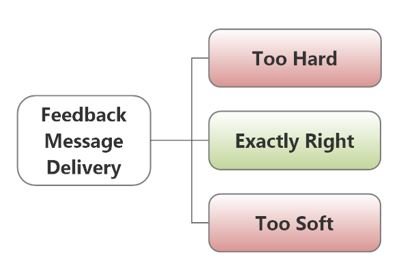The Seven Aims of Leadership Training
7 Leadership Training Objectives
Leadership training objectives must be in place in order for management training to be truly effective. The purpose of leadership training is to equip your managers to take responsibility for high value work and to manage people with strong personalities.
These are situations that hold unique challenges that need to be mastered in order for leaders to grow. The seven objectives of leadership training will help your managers and team leaders to develop themselves in the following key areas of performance:
1. Clarity of purpose
This means developing a crystal-clear conception of "Who we are and what we aim to achieve". You want your management team to embody the core values and the goals of your organisation so that they can become role models; people whom the team will want to emulate.
2. Clear communication
The members of the management team need to communicate clearly, both in the spoken and written word, because any poor communication will invite errors and increase the probability of conflicts.
3. Time management
The managers need to manage tasks and time, which means developing the ability to prioritise. It also means being able to delegate the right task to the right person. Failure to prioritise leads to everything becoming "urgent and important" which itself, leads to stress.
Proper prioritisation and delegation lead to less stress and more efficient action.
4. Handling difficult conversations and people
Knowing how to have difficult conversations using the correct amount of assertiveness; neither coming on too strong, nor too weak. Your managers need to know how to communicate a "feedback message" with the right words, the right intention and the right level of emotion, so that the message is well-received, without triggering any negative responses.

5. Self-motivation and self-confidence
The ability to manage one's own emotions: self-control, self-awareness, self-confidence, self-motivation, etc, especially during tough times, and the ability to create and communicate a positive mental attitude.
6. Inspirational leadership
The ability to inspire others. To trigger in the minds of others a continuous flow of positive thoughts, feelings and actions.
Some people call these skills, "Emotional intelligence", or "Mindfulness" and others call it simply, "Inspirational Leadership".
7. Teacher, mentor, coach and role model
The final skill we need to cover is to "pass on your knowledge". This theme casts the manager into the role of a teacher.
Your managers need to pass-on and teach their valuable skills, knowledge and experience to their colleagues who form the next generation. This can be done through a combination of methods that include; presenting, coaching, mentoring, and role modelling.
Objectives of our Leadership Training Course
The objective Corporate Coach Group's two-day Leadership and Management training course is to develop managers and team leaders in these seven key areas. Book onto a course or enquire about team training today.
Definition: leadership training objective
A leadership training objective is a learning goal used in business courses that names the exact skill leaders must gain, links that skill to company aims, sets clear measures of success and guides course design and later checks. Remove any one of these traits and it is no longer a true leadership training objective.
Show CG4D Definition
- States the specific leadership skill or behaviour to gain
- Aligns with the organisation’s purpose and values
- Sets measurable standards to judge post-course performance
- Directs both course design and later assessment
Article Summary
Clear leadership training objectives give managers the focus to lead with purpose, speak plainly, manage time, handle tough talks, stay driven, inspire others and coach the next wave, turning daily work into lasting success.
Frequently Asked Questions
Here are some questions that frequently get asked about this topic during our training sessions.
Why is clarity of purpose a key leadership training objective?
How does clear communication reduce workplace conflict?
What links time management to lower stress for managers?
How can a leader handle difficult conversations without causing defence?
Why do leaders need strong self-motivation in tough times?
What turns ordinary supervision into inspirational leadership?
How does taking a mentor and coach role strengthen a team?
Thought of something that's not been answered?
Did You Know: Key Statistics
LinkedIn Learning Workplace Learning Report 2024 states that 89% of UK learning leaders rank "upskilling managers and leaders" as their number-one focus for the year. A 2023 Gallup study finds that teams led by managers who complete a structured leadership course deliver 14% higher productivity and are 23% less likely to quit.Blogs by Email
Do you want to receive an email whenever we post a new blog? The blogs contain article 5-10 minutes long - ideal for reading during your coffee break!
Further Reading in Leadership and Management
-
How to Manage Hybrid Working
Learn a clear six-point test to decide if hybrid working fits your organisation, balance team needs and costs, and lead mixed teams with trust and results.
Read Article > -
How can I become a Thought Leader?
Learn what thought leadership is, why it works and how to earn the title. Master six skills, from purpose to Socratic questions, to inspire and guide any team.
Read Article > -
Top Management Techniques to Learn
Discover proven management techniques that replace trial and error. Boost goal setting, communication, time planning and decisions with leadership training.
Read Article > -
Management Training Skills
Learn how focused management training builds manager skills, from up-to-date technical knowledge to clear goal setting, task prioritisation and team motivation.
Read Article > -
How to Motivate People
Learn how to motivate people by replacing fear and anger with goal-driven desire. Discover leadership steps to lift team performance and workplace motivation.
Read Article >
Looking for Leadership and Management Training?
Looking for Leadership Training London? If so, you may find this Leadership and Management Training Course beneficial:
Open Training Course Pricing and Availability
Next Open Course Starts in 2 days, Leeds City, places available






